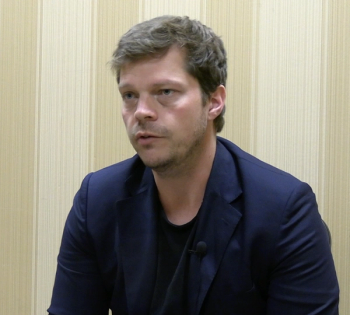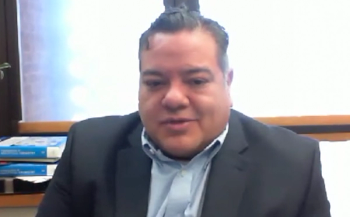
Maximizing the Up-Time inour Lab While Reducing Costs of Ownership with the Innovative Cary 3500 Flexible UV-Vis Spectrophotometer
Webinar Date/Time: Europe: Thursday, May 4, 2023, at 9 am BST | 10 am CEST North America: Thursday, May 4, 2023, at 11 am PDT | 2 pm EDT Asia: Friday, May 5, 2023, at 10:30am IST | 1 pm SST | 2 pm JST | 3 pm AEDT
UV-Vis technology is used to analyze, characterize, and quantify pharmaceutical and biological samples. Join Agilent to discuss the benefits of improving workflows in the pharmaceutical industry utilizing new UV-Vis spectrophotometer technology.
Register Free:
Event Overview:
UV-Vis spectroscopy is a mature technology used to analyze, characterize, and quantify pharmaceutical and biological samples such as active pharmaceutical ingredients, DNA/RNA, and proteins for many decades. The use of UV-Vis has been limited by the workflow needed to make these measurements efficiently. The recent advances in UV-Vis spectroscopy focus on enhancing laboratory productivity, offering ease of use, and providing multiple accessories designed specifically for application needs. Pharmaceutical and biopharmaceutical materials have become more sophisticated in life science research across fields (such as cancer research, drug development, vaccines, and quality control in regulated environments). The technology used for the analysis should evolve, too. This webinar will highlight the benefit of the new Agilent Cary 3500 Flexible UV-Vis spectrophotometer and its capabilities in improving workflows in the pharmaceutical industry.
Key Learning Objectives:
- The use of the innovative double beam Cary 3500 Flexible UV-Vis spectrophotometer for analyzing liquid and solid samples: Inherited wide linear dynamic range allows direct measurements of highly absorbing samples, minimizing sample preparation time and increasing the efficiency and accuracy of the analysis.
- Use of the variable pathlength length cell holder to measure impurities in ethanol as outlined in pharmacopeias (UPS, EP, and JP)
- The use of the solid sample accessory kit to determine spectral transmission measurements of plastic pharmaceutical containers in accordance with USP <671>.
Who Should Attend:
- Pharma/biopharma QA/QC laboratory analysts and laboratory managers
- Chemical and Energy laboratory analysis and laboratory managers
- Academia
- Scientist and post-graduates
Speaker:
Geethika Weragoda
Application Scientist
Agilent Technologies
Australia Pty Ltd
Geethika Weragoda has a PhD in physical organic chemistry and photochemistry from the University of Cincinnati. Her PhD research focused on the study of reactive intermediates and their transformation using transient spectroscopy and theoretical calculations. During this time, she joined Hiroshima University in Japan as a research scholar to study laser spectroscopic techniques. After moving to Australia, she completed a postdoctoral fellowship at the CSIRO, developing photocatalytic pathways for C-H functionalization. Geethi is currently an applications scientist at Agilent Technologies.
Register Free:
Newsletter
Get essential updates on the latest spectroscopy technologies, regulatory standards, and best practices—subscribe today to Spectroscopy.




